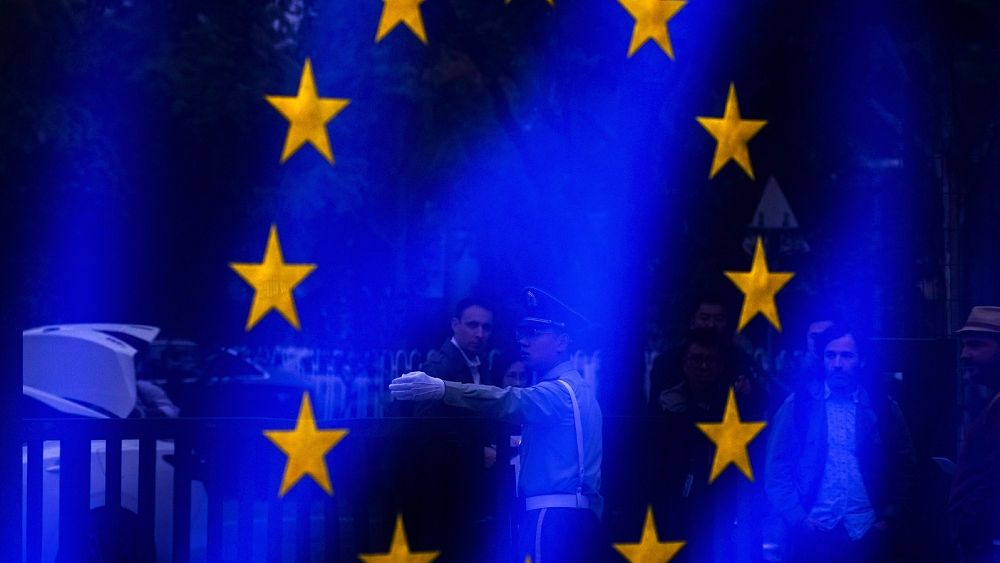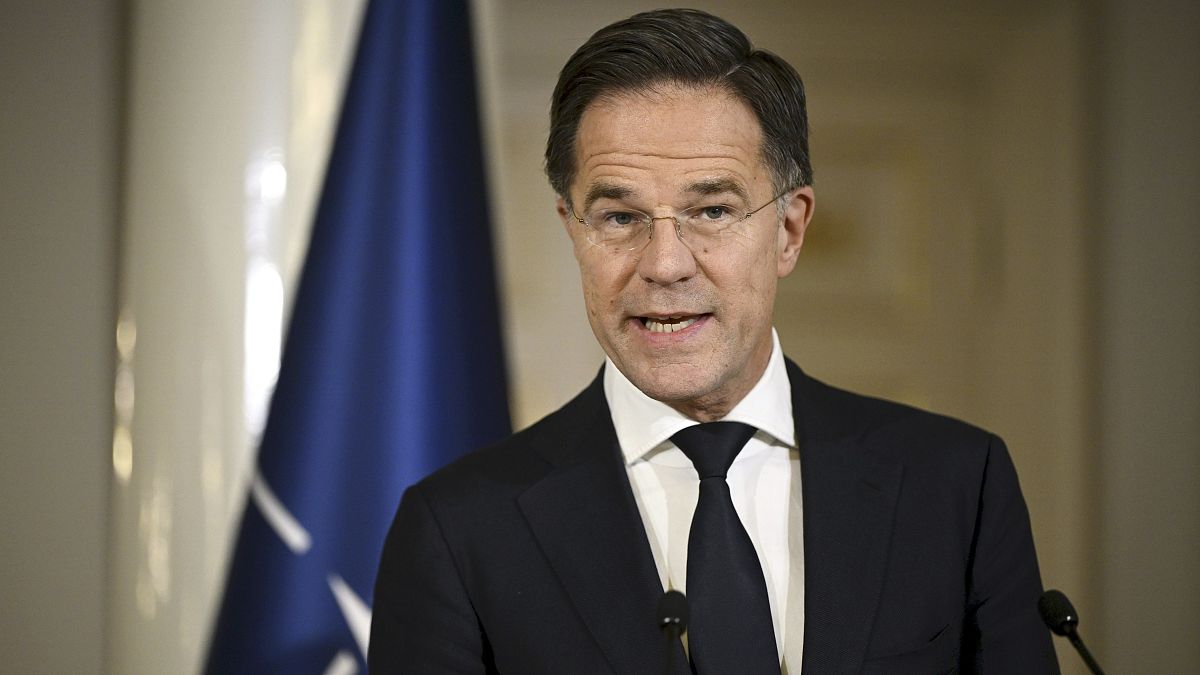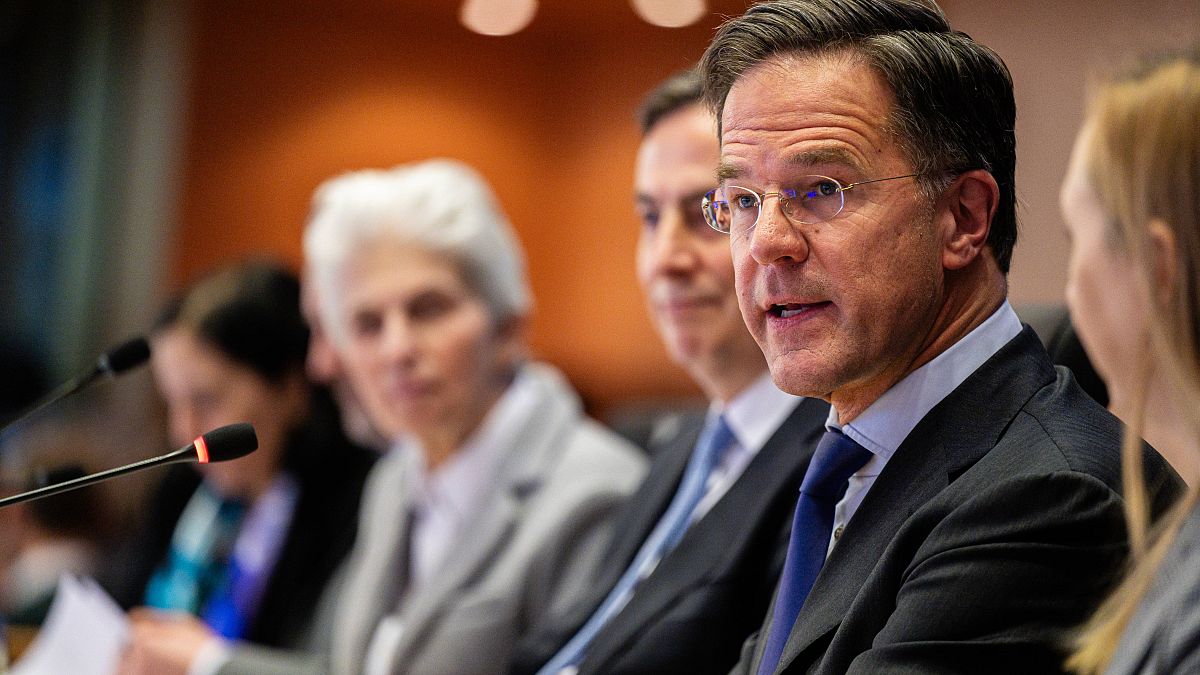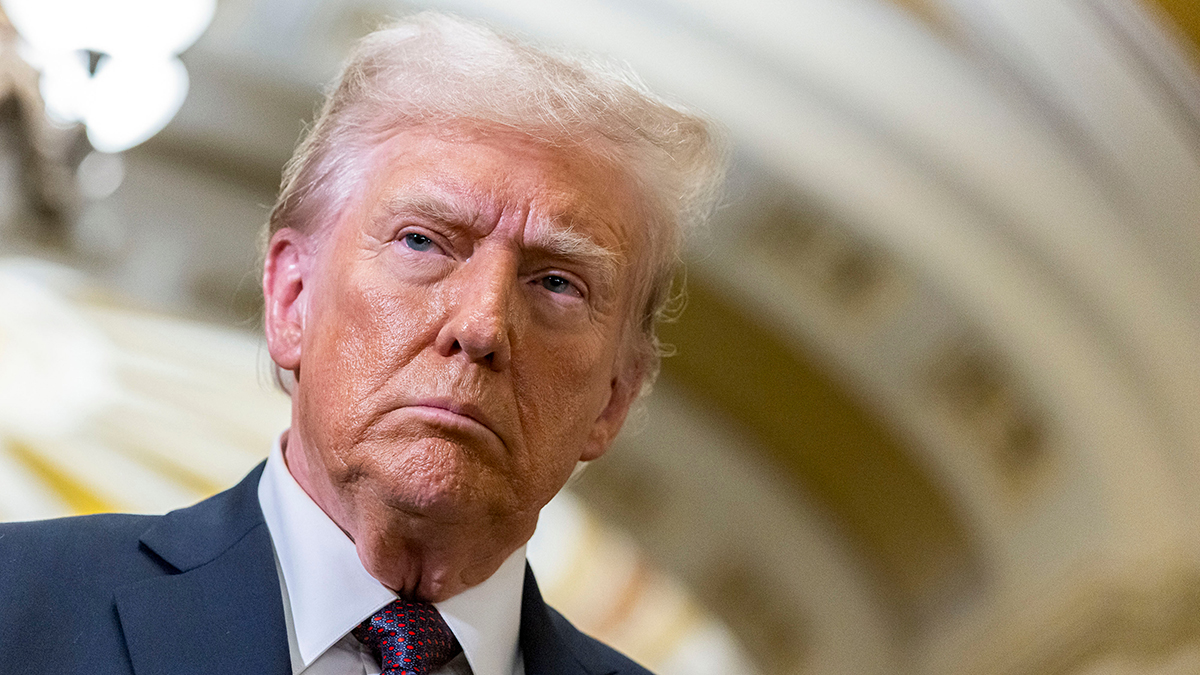World
Migration, defence: Here’s what’s on the next EU five-year plan

What directions should the European Union take during the next five years? That’s the question leaders started to wrestle with on Friday at their informal summit in Granada.
The declaration endorsed by all leaders at the end of the European Council gathering in the Andalucian city lists getting the bloc ready to welcome new members, migration and building the bloc’s “resilience”, notably in defence and competitiveness, as the priorities for the EU going forward.
But the summit was also proof of how heated some of the debates around the Strategic Agenda will be in the coming years as Hungary and Poland refused to back a set of conclusions that included a paragraph on migration.
Enlargement
The debate on enlargement for instance is likely to focus on money: who gets it and why?
Russia’s war on Ukraine has reignited the desire to enlarge the EU after a decade of standstill with Council chief, Charles Michel, even calling for a 2030 deadline.
In Granada, where a summit of the European Political Community attended by 45 leaders also took place on Thursday, most EU leaderstouted their pro-enlargement credentials.
Irish Taoiseach Leo Varadkar, for instance, told reporters that “if you take the broader view, the longer term view, enlargement is always good for Europe. It helps to provide us with security, helps to embed democracy and human rights, and also helps the European economy to grow”.
“So I think it’s really important that when we look at these questions, we don’t see them just as a financial calculation,” he added.
But while they all agree the bloc must enlarge, they also largely agree that it can’t do so without first reforming itself. Roberta Metsola, the European Parliament President, urged leaders to “start a genuine discussion on EU absorption capacity and internal reform”, describing it as “long overdue”.
Seven countries now have candidate status, including war-torn Ukraine, Moldova and five Western Balkan countries, whose bids are now well over a decade old. All are much poorer than EU member states and would therefore likely receive the lion’s share of EU cohesion and agricultural funds going forward if their criteria for attribution were left unchanged.
A point Kaja Kallas, the Estonian Prime Minister drove home, pointing out to reporters that when her country of 1.3 million inhabitants spread over just 1 per cent of the EU’s total surface areas accessed the EU in 2004, they received “like 20% of the agricultural funds in the first place.”
“So it requires also reform on our side. Is it really sustainable to do it this way?” she said.
Another idea that has been floated to encourage candidate countries to continue on the reform path towards the EU is one of gradual integration: allowing countries to join EU policies and programmes when they successfully close a negotiation chapter until they become full-fledged members. Backed by the French President, the concept was welcomed by some of the candidate countries including Albania and Serbia.
Meanwhile, some member states are calling for a change to voting rules, arguing the continued use of unanimity for certain topics would likely make the EU slower in its decision-making with more members.
Leaders are now expected to discuss in more detail in which ways the bloc should reform to welcome new members at their summit in Brussels in December.
Migration
Migration, one of the most contentious topics of the last few years in Brussels, should remain top of the agenda during the next legislative term.
According to the latest numbers from Frontex, the number of detections of irregular border crossings at the EU’s external borders during the first eight months of the year stood at over 230,000, the highest tally recorded for that period since 2016.
The EU is currently racing to conclude negotiations and approve a New Pact on Migration and Asylum before the end of the Commission’s mandate in June after member states finally adopted on Wednesday their position on the so-called Crisis Regulation. It wasthe missing piece of the sprawling legislative puzzle, and which prevented the opening of negotiations between Parliament and member states.
The pact includes plans to speed up processing at the bloc’s external borders, create a mechanism of “voluntary and temporary” solidarity, and boost the returns of irregular migrants. The aim is to put an end to the ad-hoc crisis management mode that has been in place since the 2015 migration crisis.
But not everyone is happy. Hungary and Poland, in particular, have decried the adoption in the Council of the EU of migration positions on a qualified majority basis, robbing them of their opportunity to veto.
On Friday, Hungarian Prime Minister Viktor Orbán set the tone for the coming years. Referring to the adoption by the Council of the Crisis Regulation earlier this week, he said: “Legally, we were raped”.
“So after this, there is no chance to have any kind of compromise and agreement on migration, politically. It’s impossible not today, generally speaking, for the next years,” he added.
The summit conclusions, Euronews understands, were scrapped because Warsaw and Budapest insisted a line be added about the need for consensus for migration questions.
Yet the EU now wants to focus on the root causes of migration and stronger cooperation with countries of origin and transit countries to stem the flows and boost returns
It is touting its recent deal with Tunisia, under which it provides funding for border management and faster return of asylum seekers whose applications are denied, as a possible blueprint for partnerships with third countries, despite strong criticism from members of the European Parliament and humanitarian organisations over human rights concerns.
“The better we are with legal pathways and humanitarian corridors, the stricter we can be and have to be with the return of those who are not eligible for asylum,” European Commission President Ursula von der Leyen also said on Friday.
Defence and competitiveness
Finally “resilience”, a word used four times in the Granada declaration, in relation to climate, security and defence and competitiveness. But in Granada, leaders focused primarily on the latter two.
“For us, it’s very important that we increase the defence readiness of Europe,” Kallas said. “We have a war going on in Europe and we have to prepare for that. That means also boosting defence industry, but it also means increasing the defence expenditure because this is the reality that we live in.”
The EU has already operated a 180-degree spin on defence since Russia first attacked Ukraine nearly 600 days ago by notably, providing weapons to a country at war. EU funds are also being used to boost the production of ammunition by European defence firms.
Debates about whether EU money should be used to buy foreign-made military equipment, what role a common EU defence will play and how it would fit with NATO have already erupted.
On competitiveness, the declaration states the EU must strengthen its “position as an industrial, technological and commercial powerhouse, putting a special focus on areas of high added value where we already have a competitive edge or can become a frontrunner”.
Brussels has in recent months become more combative in its bid to protect European industry from unfair practices and its access to critical materials and technologies. This has been welcomed with delight by some, like France, and cautiousness by others, like Germany .
The main issue here is how to deal with China, its stranglehold on critical supply chains and large state subsidy programmes that allow Chinese manufacturers of renewables and cars, among others, to flood the European market with cheaper products.
But it also encompasses topics such as energy, how to ensure European companies can power themselves cheaply while still continuing to curb their emissions, in a bloc with as many energy mixes as there are member states.

World
Cartier owner Richemont posts 10% increase in Q3 sales

World
Ancient Pompeii excavation uncovers lavish private bath complex

Archaeologists have unearthed a lavish private bath complex in Pompeii, highlighting the wealth and grandeur of the ancient Roman city before it was destroyed by Mount Vesuvius in AD 79, the site said on Friday.
The baths, featuring hot, warm and cold rooms, could host up to 30 guests, allowing them to relax before heading into an adjacent, black-walled banquet hall, decorated with scenes from Greek mythology.
ITALY’S ANCIENT POMPEII PARK CRACKS DOWN ON DAILY VISITORS TO COMBAT OVERTOURISM
The pleasure complex lies inside a grand residence that has been uncovered over the last two years during excavations that have revealed the opulent city’s multifaceted social life before Vesuvius buried it under a thick, suffocating blanket of ash.
A central courtyard with a large basin adds to the splendour of the house, which is believed to have been owned by a member of Pompeii’s elite in its final years.
“This discovery underscores how Roman houses were more than private residences, they were stages for public life and self-promotion,” said Gabriel Zuchtriegel, director of the Pompeii Archaeological Park.
The private thermal baths complex discovered by archaeologists in a villa of the ancient city of Pompeii is seen in Pompeii, Italy, in this undated handout picture released on January 17, 2025. (Pompeii Archeological Park/Ministry of Cultural Heritage and Activities and Tourism/Handout via REUTERS )
Zuchtriegel said the layout recalled scenes from the Roman novel “The Satyricon”, where banquets and baths were central to displays of wealth and status.
Decorated with frescoes, the complex draws inspiration from Greek culture, emphasizing themes of leisure and erudition.
“The homeowner sought to create a spectacle, transforming their home into a Greek-style palace and gymnasium,” Zuchtriegel said.
The remains of more than 1,000 victims have been found during excavations in Pompeii, including two bodies inside the private residence with the bathhouse – a woman, aged between 35-50, who was clutching jewellery and coins, and a younger man.
The discovery of their bodies was announced last year.
World
‘Fields were solitary’: Migration raids send chill across rural California

Los Angeles, California — Recent raids carried out by the United States Customs and Border Protection (CBP) in a rural California county have struck fear into immigrant communities as President-elect Donald Trump prepares to return to the White House.
CBP says that the operation in Kern County, which took place over three days in early January, resulted in the detention of 78 people. The United Farm Workers (UFW) union says it believes the number is closer to 200.
“The fields were almost solitary the day after the raids,” a 38-year-old undocumented farmworker named Alejanda, who declined to give her last name, said of the aftermath.
She explained that many workers stayed home out of fear. “This time of year, the orchards are usually full of people, but it felt like I was by myself when I returned to work.”
The raids are being seen by local labourers and organisations like UFW as a shot across the bow from immigration enforcement agencies before Trump’s inauguration on Monday.
His second term as president is expected to ring in a new era of enhanced restrictions and deportation efforts.
While the number of people arrested represents a small fraction of the hundreds of thousands of undocumented workers underpinning California’s agricultural sector, the anxieties caused by such raids extend far beyond those detained.
“On Wednesday [the day after the raids], I stayed home from work. I barely left my house,” said Alejanda, adding that she kept her five-year-old son home from daycare rather than risk driving to drop him off.
“Everyone is talking about what happened. Everyone is afraid, including me. I didn’t actually see any of the agents myself, but you still feel the tension.”
Emboldened agencies
Following a presidential campaign where he routinely depicted undocumented migrants as “criminals” and “animals”, Trump will likely try to fulfill his promise to carry out the “largest deportation programme” in the country’s history on his first day in office.
About 11 million people live in the United States without legal documentation, some of whom have worked in the country for decades, building families and communities.
The January arrests in Kern County appear to be the first large-scale Border Patrol raid in California since Trump’s victory in the November election, which set off speculation about the potential impact of mass deportations on immigrant communities and the economic sectors dependent on their labour.
About 50 percent of California’s agricultural workforce is made up of undocumented immigrants.
In California, undocumented status has been cited as a source of persistent anxiety for workers — as well as a means of leverage for employers, who often pay such labourers lower wages and grant them fewer protections in the fields.
But Alejanda says that workplace raids like the ones that took place in Kern County have not been common in the area.
“I have been here for five years and never experienced anything like this before,” she said, noting that workers were detained while leaving the fields to go home.
CBP said in a statement that the operation, named “Return to Sender”, had targeted undocumented people with criminal backgrounds and connections to criminal organisations.
#WeFeedYou pic.twitter.com/8e6GE9RRkK
— United Farm Workers (@UFWupdates) January 11, 2025
The raids were carried out by agents from the CBP El Centro Sector, located near the border between Mexico and southern California, more than five hours by car from the site of the raids.
“The El Centro Sector takes all border threats seriously,” Chief Patrol Agent Gregory Bovino said in a press release. “Our area of responsibility stretches from the US/Mexico Border, north, as mission and threat dictate, all the way to the Oregon line.”
Antonio De Loera-Brust, a spokesperson for UFW, said that the operation shows that agencies like CBP are likely to become more aggressive as Trump takes office.
He also disputed CBP’s characterisation of the raids as focused on people with criminal records, saying that the operation cast a wide net and profiled people who looked like farmworkers.
Two of those arrested were UFW members, whom the organisation described as fathers who had lived in the area for more than 15 years.
“By operating over 300 miles north of the Mexican border, and apparently conducting this untargeted sweep based on profiling on their own initiative and authority, Border Patrol has shown itself to be clearly emboldened by a national political climate of hostility towards hard-working immigrant communities,” De Loera-Brust told Al Jazeera.
“It’s certainly deeply concerning that this sort of operation could be the new normal under the incoming Trump administration.”
-
/cdn.vox-cdn.com/uploads/chorus_asset/file/25822586/STK169_ZUCKERBERG_MAGA_STKS491_CVIRGINIA_A.jpg)
/cdn.vox-cdn.com/uploads/chorus_asset/file/25822586/STK169_ZUCKERBERG_MAGA_STKS491_CVIRGINIA_A.jpg) Technology1 week ago
Technology1 week agoMeta is highlighting a splintering global approach to online speech
-

 Science6 days ago
Science6 days agoMetro will offer free rides in L.A. through Sunday due to fires
-
/cdn.vox-cdn.com/uploads/chorus_asset/file/25821992/videoframe_720397.png)
/cdn.vox-cdn.com/uploads/chorus_asset/file/25821992/videoframe_720397.png) Technology1 week ago
Technology1 week agoLas Vegas police release ChatGPT logs from the suspect in the Cybertruck explosion
-

 News1 week ago
News1 week agoPhotos: Pacific Palisades Wildfire Engulfs Homes in an L.A. Neighborhood
-

 Education1 week ago
Education1 week agoFour Fraternity Members Charged After a Pledge Is Set on Fire
-
/cdn.vox-cdn.com/uploads/chorus_asset/file/23935558/acastro_STK103__01.jpg)
/cdn.vox-cdn.com/uploads/chorus_asset/file/23935558/acastro_STK103__01.jpg) Technology6 days ago
Technology6 days agoAmazon Prime will shut down its clothing try-on program
-

 News1 week ago
News1 week agoMapping the Damage From the Palisades Fire
-

 News1 week ago
News1 week agoMourners Defy Subfreezing Temperatures to Honor Jimmy Carter at the Capitol















